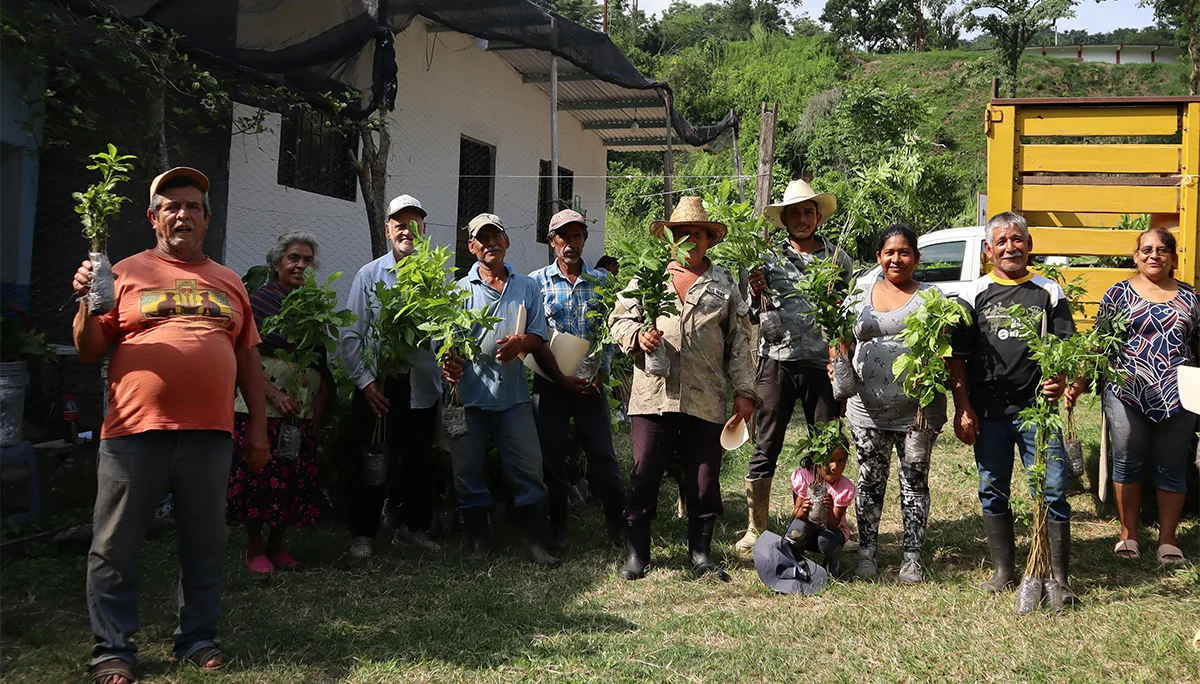Incorporating an Indigenous Environmental Justice Network in Chiapas, Mexico
Organization: Cooperativa AMBIO S.C. de R.L.
AMBIO is a cooperative organization that works with rural communities to manage forest resources, mitigate climate change and promote sustainable development, through a comprehensive, inclusive and participatory approach.
Location: San Cristóbal de las Casas, Chiapas
Communities benefiting directly from the project: Corazón del Valle: 190 people (95 women; 95 men), Niños Héroes: 162 people (84 women; 78 men), Monte Sinaí II – El Fénix: 344 people (171 women; 173 men) and San Joaquín El Rosario: 24 people (12 women; 12 men).
Country: Mexico
 @ AMBIO
@ AMBIO
Background
The Zoque region in the southern state of Chiapas is inhabited by the Tzotzil and Tzeltal Indigenous Peoples. Communities in this region are facing increased vulnerability to climate change impacts. Extended droughts, forest fires, the loss of forest cover and the presence of pests have seriously affected production systems such as corn and bean agriculture, forestry management and coffee farming. These conditions have led to a drop in productivity, forced migration and a weakening of the community fabric. Despite protected areas such as the Sepultura and Selva El Ocote biosphere reserves, environmental damage and extreme poverty, which affect 80% of the population, are worsening the situation.
This project has emerged as an urgent response — strengthen community resilience by restoring ecosystems, empowering vulnerable groups and creating an Indigenous network to promote environmental justice in a context of high socio-environmental fragility.
Goals
- Strengthen climate resilience and environmental justice in the Zoque forest region in Chiapas.
- Promote the creation and incorporation of an Indigenous network of environmental justice, led by Indigenous communities.
- Train and empower vulnerable groups, particularly women and youth, to face climate change impacts.
Main activities
- Support women’s groups, to strengthen internal governance and participation in decision-making spheres.
- Boost the productive activities of women, as a strategy to develop resilience and economic autonomy.
- Design community plans to restore and manage forest areas affected by climate change, with a focus on environmental equity and climate resilience.
- Train Indigenous communities in the principles of environmental justice and climate change adaptation, and develop exchanges of experience among them.
- Work jointly with community leaders and actors, as well as key government and non-government figures, through forums for dialogue on Indigenous environmental justice.
Expected outcomes
- Community capacity-building for sustainable natural resource management.
- Consolidation of an Indigenous network of environmental justice in the Zoque forest region.
- Greater participation and leadership among women in organizational processes and community decision-making.
- Positioning of community proposals in spaces for public dialogue on climate change and environmental justice.
- Stronger social fabric and community autonomy to address the challenges of climate change.